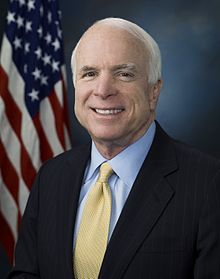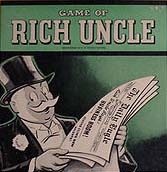 Since there were none of the riots that Fox News was predicting, they had to go elsewhere with their fear mongering and racist coverage Monday’s broadcast. I just caught a little bit of Shepard Smith’s show and it was quite the thing to watch. As I try to explain to fans of Fox News, the problem is not so much that the station actively lies—although they do enough of that. The big problem is what they choose to cover. In a general sense, there is nothing wrong with this. Last week on Counterspin, FAIR had a segment of Sequestration, which is great, even though most of the mainstream national press couldn’t care less about the issue. Similarly, on right wing hate radio, they are still talking about Solyndra. But no one mistakes FAIR or the right wing talkers for the mainstream media. Fox News is very much mainstream media. And thus people get the impression that if Fox News is reporting it, it must be a big story.
Since there were none of the riots that Fox News was predicting, they had to go elsewhere with their fear mongering and racist coverage Monday’s broadcast. I just caught a little bit of Shepard Smith’s show and it was quite the thing to watch. As I try to explain to fans of Fox News, the problem is not so much that the station actively lies—although they do enough of that. The big problem is what they choose to cover. In a general sense, there is nothing wrong with this. Last week on Counterspin, FAIR had a segment of Sequestration, which is great, even though most of the mainstream national press couldn’t care less about the issue. Similarly, on right wing hate radio, they are still talking about Solyndra. But no one mistakes FAIR or the right wing talkers for the mainstream media. Fox News is very much mainstream media. And thus people get the impression that if Fox News is reporting it, it must be a big story.
So the big story on Fox News is that Eric Holder said that Trayvon Martin was a “tragic, unnecessary shooting death.” Furthermore, Benjamin Jealous of the NAACP is calling for a federal civil rights trial of George Zimmerman. Oh my God! That’s so shocking! Also, Trayvon Martin’s parents are thinking about a civil case against Zimmerman. Let’s think about those for a minute. First, Holder is right. I would like to think that even Zimmerman’s staunchest defenders would admit that it was a tragic, unnecessary death. We all could assume that the NAACP would call for a federal case. Regardless, we knew before the verdict that this was a possibility. As for the civil case, there’s been a lot of talk about that the whole time.
Smith was also reporting on the need for George Zimmerman to get his gun back. One “reporter” went on at some length about this and the subtext was not good. You see, with all those angry negroes in the NAACP, you know they’re coming after poor George. After all, they are calling for a civil rights charge to be filed against him. That’s just respectable negrospeak for “bust a cap in your ass.” Really, that’s the level of the nonsense that we are getting from Fox News. I fully expect to see George Zimmerman on Hannity’s show talking about how scared he now feels.
On their website, Fox News has the headline, More Than a Dozen Arrested in Protests Against Zimmerman Verdict. The article itself, however, tells a different story, “Thousands of people staged demonstrations in cities across America Sunday and into Monday—resulting in more than a dozen arrests in New York City and Los Angeles—as they voiced their disappointment and anger at the decision by a Sanford, Fla. jury’s [decision] to acquit George Zimmerman in the fatal shooting of 17-year-old Trayvon Martin.” In other words, they couldn’t report riots, so they reported negligible arrests to invalidate the protests. And what were those arrests for? “Police in Los Angeles said they arrested six people on Monday, mostly for failure to disperse.”
I understand all the people who are upset that Zimmerman was found not guilty. I share their disappointment. And if they had rioted, I would have been at least understanding. But I don’t understand why the political right is so vindictive even—Or especially!—when it wins. If George Zimmerman had been convicted, I could understand the blanket coverage about the miscarriage of justice. But this isn’t about that at all. This is about how the black folk are coming for all the good white folk. This is, “We got the ruling we wanted; be afraid, be very afraid!”
Update (15 July 2013 5:15 pm)
I decided to watch the beginning of All In to see what was said there. They were clearly upset, but there was no fear mongering. The one point they were most upset about was the after trial press conference when the defense said that if it had been the other way around, Trayvon Martin wouldn’t have been prosecuted. That is, admittedly, an outrageous statement. Remember: when the police investigated the crime, they tested Martin for drugs, but not Zimmerman. They did a criminal background check on Martin, not Zimmerman. The idea that the justice system was especially hard on Zimmerman because he wasn’t black is ridiculous. But the main thing is that on MSNBC, which clearly has a Democratic bias, I saw nothing especially out of line. But then, I tend to agree with them.
Update (15 July 2013 5:53 pm)
I don’t think I’ve ever seen Cenk Uygur this upset. It is really good and I agree with him right down the line:
Update (15 July 2013 10:32 pm)
The Washington Post just reported, Juror: 6-Woman Jury Was Initially Split on Convicting Zimmerman, but Law Led Them to Acquit. That is not what actually happened. The truth is that juries are a very unstable thing. Three jurors wanted to convict on at least manslaughter. What it means is that the three on the other side were dominant. And that is all that it means.
Also: All In had this great segment of a case where a black woman got 20 years for simply firing a gun that harmed no one; she was not allowed the use of the stand-your-ground law.
 Rembrandt Harmenszoon van Rijn, a man so great we know him by his first name, was born on this day in 1606. Under normal circumstances, I would have given the day to him. But it is hard to do that when Google has spent the whole damned day hocking their doodle of him. He is unquestionably great, and I really like his work. However, I prefer Vermeer. It isn’t that I think Vermeer is better. From a technical standpoint, Rembrandt is certainly better. To me, he is very similar to the best of the High Renaissance, which is a very great compliment. But there is a certain magic in the way that Vermeer uses light that I find very compelling. Rembrandt is undoubtedly more realistic. But what does my opinion matter? You’re reading a man who is most inspired by pre-perspective religious painting.
Rembrandt Harmenszoon van Rijn, a man so great we know him by his first name, was born on this day in 1606. Under normal circumstances, I would have given the day to him. But it is hard to do that when Google has spent the whole damned day hocking their doodle of him. He is unquestionably great, and I really like his work. However, I prefer Vermeer. It isn’t that I think Vermeer is better. From a technical standpoint, Rembrandt is certainly better. To me, he is very similar to the best of the High Renaissance, which is a very great compliment. But there is a certain magic in the way that Vermeer uses light that I find very compelling. Rembrandt is undoubtedly more realistic. But what does my opinion matter? You’re reading a man who is most inspired by pre-perspective religious painting.
 There’s a great scene toward the end of The Matrix where Agent Smith is talking to Morpheus. He says that humans are like a virus. This is actually a shockingly stupid argument. The truth is that all creatures bread to the point where they exhaust all resources and then either die out or move onto green pastures. It is only other species that causes there to be any balance in the environment. But I think the virus analogy is pretty good when it is applied to American journalism.
There’s a great scene toward the end of The Matrix where Agent Smith is talking to Morpheus. He says that humans are like a virus. This is actually a shockingly stupid argument. The truth is that all creatures bread to the point where they exhaust all resources and then either die out or move onto green pastures. It is only other species that causes there to be any balance in the environment. But I think the virus analogy is pretty good when it is applied to American journalism. Since there were none of the riots that Fox News was predicting, they had to go elsewhere with their fear mongering and racist coverage Monday’s broadcast. I just caught a little bit of Shepard Smith’s show and it was quite the thing to watch. As I try to explain to fans of Fox News, the problem is not so much that the station actively lies—although they do enough of that. The big problem is what they choose to cover. In a general sense, there is nothing wrong with this. Last week on
Since there were none of the riots that Fox News was predicting, they had to go elsewhere with their fear mongering and racist coverage Monday’s broadcast. I just caught a little bit of Shepard Smith’s show and it was quite the thing to watch. As I try to explain to fans of Fox News, the problem is not so much that the station actively lies—although they do enough of that. The big problem is what they choose to cover. In a general sense, there is nothing wrong with this. Last week on  Politico reports this morning,
Politico reports this morning,  Speaking of
Speaking of  Nancy Folbre is an economist at the University of Massachusetts, Amherst. And last night, she wrote an article over at the Economix Blog,
Nancy Folbre is an economist at the University of Massachusetts, Amherst. And last night, she wrote an article over at the Economix Blog,